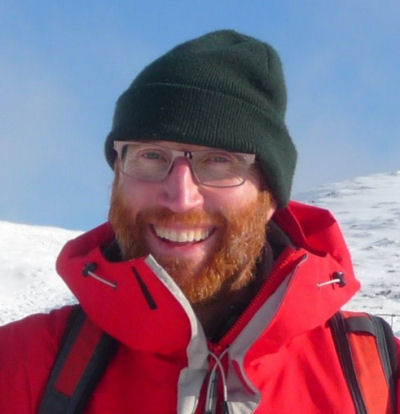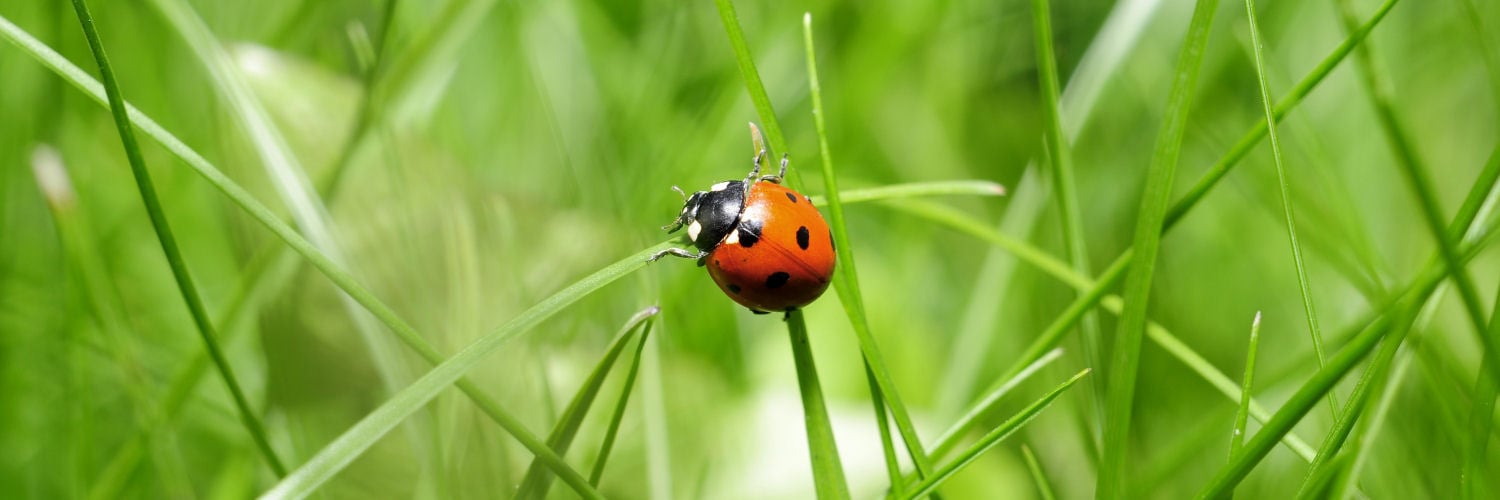Richard Marsh, Senior Nature Conservation Officer, Leeds City Council
My name is Richard Marsh and I’m passionate about the natural world. For the past 10 years I've been the Senior Nature Conservation Officer for Leeds City Council working within the planning service to lessen the impact on biodiversity from new developments. Working in the public sector and standing up for wildlife are values I hold close to my heart and I consider myself fortunate to be able to earn a regular income from such work.
I’m always trying to think of ways to help the natural world and influence behavioural or system changes that have positive outcomes for wildlife. Until recently I had not considered trying to engage with the education system as it always seemed a remote, different world with its own pressures and demands.

However, if someone asked me now “What is the single biggest thing that has been achieved to help wildlife in England during the last 50 years?” Instead of all the new legislation for nature reserves, protected species and habitats I would have to say “Convincing the Education sector to accept a new stand-alone GCSE called Natural History.”
I think we should all take a moment to recognise the excellent campaigning and lobbying work by Mary Colwell over the last dozen or so years which has led to the Government approving a new GCSE in Natural History. Teaching Natural History in the classroom (and outside of it) is a necessary way to reconnect the next generation with our natural world. If we can take a step forward to feel like we are a part of nature rather than apart from it, then we have hope.
If the option to study nature had been available years ago, I’d had chosen it like a shot, or at least I hope I would have. Instead, I discovered nature in a more round-about way through bits of GCSE Biology and Geography and occasional trips to our school moat for pond dipping. When picking my A-levels I went for those two afore-mentioned subjects as no-brainers, but was also somehow talked into taking Economics as my third choice - “it’s all very well enjoying science and that green stuff but you will need to get a job one day” said my parents.
It took me years after University to work out what I wanted to do and find a way through full-time voluntary work into the paid conservation sector – it was tough back then with very few paid jobs available, and those that were advertised were often for only 6 months or a year. My most valuable lessons in learning the language of nature came from my voluntary work where I learnt about animal and plant identification in the field from experts, wrote reports and mapped habitats. As Morrissey (and Virginia Woolfe) once said “Nature is a language, can’t you read?”
Encouragingly, because of the Environment Act (2021) I have seen more paid jobs in the conservation sector than ever before, due to new initiatives such as Biodiversity Net Gain and Local Nature Recovery Strategies. Jobs in local authorities, Natural England and ecological consultancies are more readily available than I can ever recall – to the extent employers are now concerned they can’t get enough qualified people. Let’s hope that schools and parents will see that learning about nature can also lead to jobs and careers.
If secondary schools do take the Natural History GCSE option seriously, then they'll want places to study nature nearby, or better still develop areas in their own school grounds. I'd also like to see primary schools spending more time studying nature too. A tear always wells up in my eyes when I think back to my son’s experience of spending 7 years in his primary school without once finding a reason to go into the 180-hectare local nature reserve right on its doorstep.
As someone working in the Nature Conservation profession, I feel it’s so important to help the next generation as soon as possible to read nature. So, I really do hope that GCSE Natural History becomes a subject that secondary schools across England embrace, and it gets widely taught to students. In a perfect world it’ll be taught to all students.
For this to become a reality, we need to continue to communicate the importance of this subject to students and their parents who can influence schools and have some bearing on what their kids are taught – do they even know Natural History is soon to be an option?
We’ll also ideally want dedicated Natural History teachers who know the subject inside-out and can teach it in an enthusiastic and knowledgeable way. The burden should not just fall to Biology or Geography teachers who have their own subjects to teach. Maybe it will also need people like myself, with experience of nature conservation, to help the academic sector or even retrain to become teachers?
I can’t help but think the nature conservation sector (including the Government’s nature conservation advisors Natural England) has a role to play through engaging with the Education sector. Within my local authority workplace I rarely talk to those involved in delivering education, unless the meeting concerns provision of a new school on additional land due to the number of new houses being built – but wouldn’t it be great to be designing-in new nature reserves next to new schools (and nature areas within school grounds) so they have a place to study outdoors for their Natural History GCSE? If Natural History also becomes an A-Level option, then more degree courses specialising in botany and different branches of ecology will also likely emerge.
One thing I’m wary about is just sitting back and seeing what happens, with continued action we can ensure Natural History is a subject available to all students. I’m personally surprised we don’t already have a stand-alone GCSE called “Climate Change”, and more importantly another called “Adaptation to Climate Change” (focusing on how students can learn the skills to live a world that is going to be much more challenging than the one we have grown up in). Mary Colwell has more than done her bit so far – but what next to get a team of Natural History teachers in every school across England? That sounds like one of the best gifts we can give our next generation.
Richard Marsh, Senior Nature Conservation Officer, Leeds City Council
Richard Marsh has a B.Sc. (hons) in Environmental Science & Geography and is a member of CIEEM. He started his conservation career at Walsall MBC’s Countryside Services and Somerset Environmental Record Centre before working for two different Local Planning Authorities, Cornwall Wildlife Trust and English Nature (now called Natural England).
Keep up to date with our proposed GCSE in Natural History and other Cambridge OCR Natural History news by signing up our email newsletter and updates. You can read back issues of our Natural History newsletter here.


